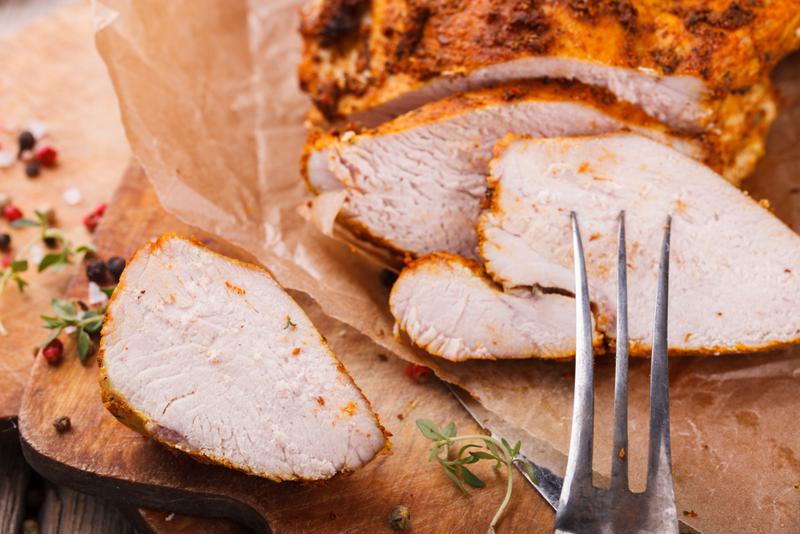A point of contention among people seeking their online culinary education is whether or not to brine that Thanksgiving turkey. On one hand, it’s a classic method of preparation. It’s what your mother and grandmother probably did when seemingly effortlessly getting ready for the holiday ahead. However, you’re also probably interested in experimenting with new methods – but is Thanksgiving really the best time to mess with what’s worked in the past? Here’s what you need to know about brining a turkey.
 Brining your turkey can help it retain moisture.
Brining your turkey can help it retain moisture.What is brining?
Brining is a process typically used on meats that dry out easily. If you’ve ever had a turkey that’s spent a few too many minutes in the oven, you’re well aware of what a dried out turkey tastes like, and how much gravy you need to enjoy it. By soaking the bird – or any other lean meat – in a brine made up of salt, water, and other ingredients like herbs, the moisture gets locked into the turkey, making for a juicier, more tender bird.
This process works for a variety of reasons, according to Food & Wine. For example, the muscle fibers in the meat absorb the liquid during brining, so the turkey’s natural juices aren’t cooked out of the turkey, as well as the fact that the salt and water dissolve some of the proteins in the turkey, adding more liquid to the meat. This is because the salt can denature the proteins, causing their bonds to break and the water to bind to them.
How to brine
While brining a turkey is pretty simple on its own, many people are turned off by the idea since it takes up so much space. It can be tough to fathom giving so much refrigerator real estate to your turkey when you have a whole meal to prepare. But once your turkey starts brining, you can forget about it until you’re ready to cook it. Simply clear out enough fridge space for your turkey and the container it’ll be soaking in. Depending on the size of your turkey, allow between 24 and 48 hours to soak before you cook it. However, if your turkey is labeled “kosher” or “enhanced,” do not brine it. These birds have already been treated with salt in some way, and brining it will make for a much too salty bird.
Brining alternatives
Some chefs prefer not to brine their turkeys, because they want to be able to produce a crispier skin than brining allows, or find that the juices from a brined bird are too salty to use in gravy. If you prefer not to use a traditional brining method, you can dry-brine your turkey by rubbing salt on it the night before you cook it. Not only does this require a little less space in the refrigerator, but it doesn’t have to be planned two days in advance, either.


